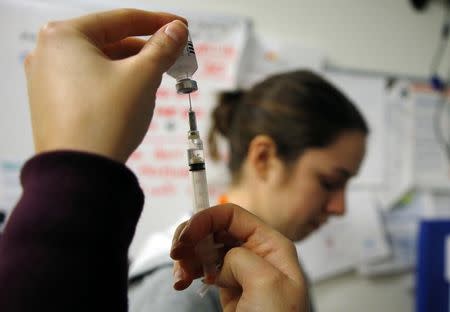 Science and Weather
Science and WeatherPeople who say they don't get sick are probably lying

A full 95 per cent of people were sick in 2013, and most people have multiple ailments at the same time.
These are the latest findings of the ongoing Global Burden of Disease Study, published last weekend in the prestigious medical journal The Lancet.
“We make estimates of what kills people and what makes people sick, in all countries in the world,” study lead author Theo Vos, professor of global health at the University of Washington, told Yahoo Canada.
The study began in 1990. A quarter century later, some intriguing numbers have emerged. Among them? Fully one third of us (2.3 billion people) are enduring five or more ailments simultaneously.
“One of the major findings is that the main causes of disability don’t change that much,” Vos explained. “There are exceptions, but what we’ve seen since 1990 is that death rates have dropped quite dramatically, almost anywhere we look. But the rate of change in the aggregate of all disabling conditions has been very slow.”
Proportionally, on a global scale, people simply aren’t dying as much.
But they are getting older, and that opens the door for increased rate of debilitating illness.
“In 20 countries or so, in the way we measure it, disability has already overtaken premature mortality as the most important component,” Vos noted.
The study’s numbers paint a broad global picture, but can also zoom in on practically any ailment – in almost any nation of the world.
“What are the things that are changing a lot? What things are improving? Can we, therefore, better plan our health services, and spend the money and do the training in the right places, so that we’re able to face the problems that will be there in five, ten, 20 years?
The data also suggests the lower overall death rate is a function of initiatives being mounted world-wide against a wide range of ailments.
“We’re very good at vaccinating kids for infectious diseases,” Vos said.
“We’re giving them antibiotics. We’re very good at preventing heart disease. We have reduced tobacco-related diseases in many parts of the world quite dramatically.”
Vos has been with the study from the beginning. He says he actually gets less surprised by the results as time goes on.
“Many of the big surprises came when I was doing this work in the 90s. It’s fascinating to see what is happening, and where there are successes,” he concludes.
“It’s sobering to see the old, big remaining problems, where we just don’t have the right sort of capacity to address them as we can with other things.”
That’s not to say the world’s population is permanently on its deathbed.
“We’re counting any departure from good health, no matter how small it is,” Vos said.
“When we say 95 per cent of humanity has at least one health problem, that includes a whole lot of things that most people would consider very minor or trivial – a headache every now and then, or having a minor skin problem.”


